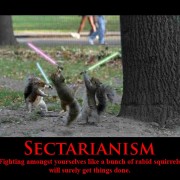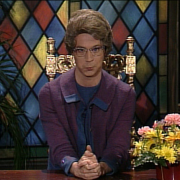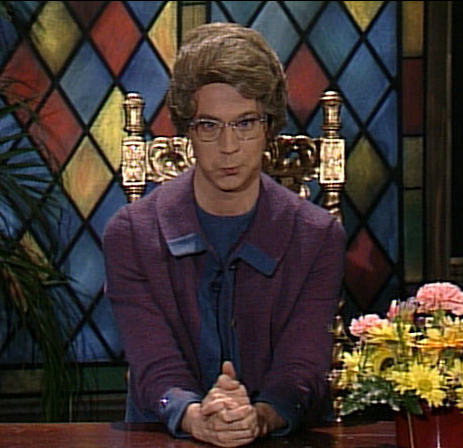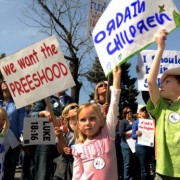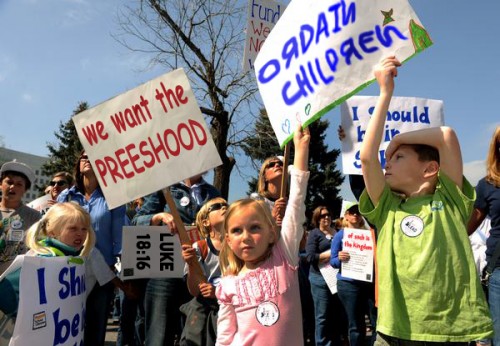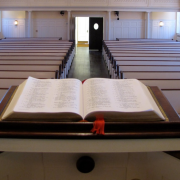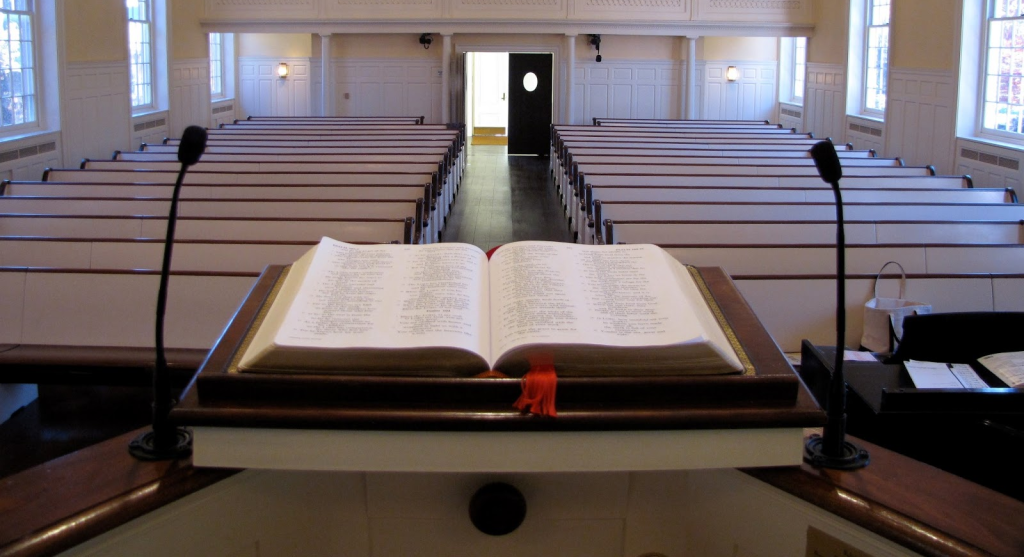
A narrative from the pages of Dialogue:A Journal of Mormon Thought: (minor edits by me)
See https:/5922/scriptural-commentary-on-only-true-church-doctrine/
“What’s a Rameumptom, Dad?”
“Well, the Book of Mormon says it was a place where the Zoramites stood to worship and pray.”
“But my church teacher said it was a tower that evil people used.”
“I can see how someone could think that. The Book of Mormon says the people who used it were wicked and perverse.”
“What made them wicked?”
“It says they were lifted up in pride and boasting and their hearts were set on getting rich. It seems like the Rameumptom and their religious tradition were mainly really prideful. In fact the Rameumptom was a place for standing which was high above the head’ and only one person at a time could go up there.”
“Was it like the speaker’s stand in the church?”
“A speaker’s stand? You mean a pulpit? Well maybe, I suppose it was. In fact, the word ‘Rameumptom’ means ‘the holy stand.'”
“What’s so evil about a holy stand, Dad?”
“Well, it wasn’t the stand that was evil. It was how it was used. The people gathered there in their synagogue. . .”
“What’s a synagogue?”
“Just a different word for chapel or church.”
“Oh.”
“They’d gather in their synagogue one day a week.”
“Which day, Dad?”
“I don’t know, honey. It just says ‘one day,’ and they called it ‘the day of the Lord.'”
“It must have been Sunday.”
“Why do you say that?”
“Because Sunday is the Lord’s day.”
“Well, maybe it was. . . Anyway, they’d gather there and whoever wanted to worship would go and stand on the top of the Rameumptom.”
“Could anyone go up there?”
“Well, no, that was part of the problem. Apparently, they had to wear the right clothes. . . ”
“You mean like us when we wear Sunday clothes, Dad?”
“Well, not exactly, but in a way, yes, I suppose. Some of us might have a hard time accepting certain kinds of clothes or people in sacrament meeting. But we wear our Sunday clothes to help us be reverent, don’t we?”
“Yes, Dad.”
“So anyway, where was I?”
“They went to the top of the Rameumptom. . .”
“Yes, they would go up and worship God by thanking him for making them so special.”
“Were they bearing their testimonies?”
“Well, uh, I guess maybe they were in a way, but they weren’t true testimonies.”
“How come?”
“Because they were too proud.”
“What do you mean ‘proud,’ Dad?”
“Well, they would talk about how they were ‘a chosen and holy people.'”
“My Primary teacher said Mormons are the chosen people and we’re a special generation.”
“Yes, honey, but that’s different.”
“How?”
“Because we are.”
“Oh.”
“Besides they were very, very proud about how much better they were than everyone else, because they didn’t believe the ‘foolish traditions’ of their neighbors.”
“What does that mean, Dad?”
“It means that they believed everyone else was wrong and they alone were right.”
“Isn’t that what we believe?”
“But it’s different.”
“How?”
“Because we are right, honey.”
“Oh.”
“Everyone would stand and say the same thing. . .”
“That sounds like testimony meeting to me.”
“Don’t be irreverent.”
“Sorry.”
“Then after it was all over, they would go home and never speak about God until the next day of the Lord when they’d gather at the holy stand again.”
“Isn’t that like us, Dad?”
“No honey, we have Family Home Evening.”
“Oh.”
“Dad, I still don’t see how they were that much different than us.
By Robert Nelson, Jr., Dialogue: A Journal of Mormon Thought, 22, no. 4 (Winter 1989): 8-9.

